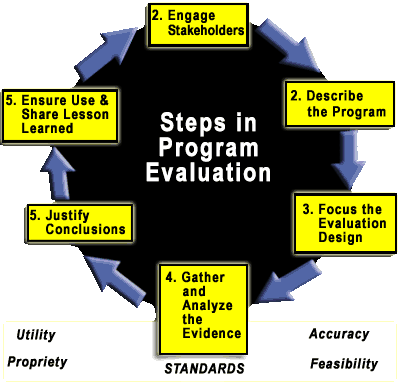Difference Between Audit and Program Evaluation

Audit and evaluation are powerful assessment tools, which help individuals, organizations and businesses to assess their overall operations. While these two processes work to achieve improvement, obvious differences exist in their operational methods and consequent results.
Generally program evaluation or simply evaluation is undertaken to measure the output associated with a project. Here, a company will tap into a matter by identifying and understanding the overall gains associated to it, and will then take steps to improve it on a periodic basis. A time constraint may be attached to the process in order to gauge the true impact of the assessment.
Auditing specifically deals with the financial concerns of a company where the whole business is under scrutiny, with regards to information already prepared. Auditors will simply validate that information and give an opinion about it. They may be further allowed to give their own input but will adhere to pre-defined accounting rules for the betterment of the company, its investors as well as the general public. A time frame may not be associated to the process as it is usually carried out at the end of an accounting cycle.
Evaluation can be formative and summative, where the former refers to the examination of the initial process of implementing and delivering the product or item, while the latter takes into account the impact and the effect of that outcome.
Auditing can take various types, ranging from internal and external to social and non-statutory. Moreover, quality audit is concerned with the efficiency of the overall management system, while integrated audit deals with the study of financial reports.
Evaluation is more management oriented, and will be carried out every now and then or after the completion of a project by a company to improvise and improve. Audit is an independent work which comes in to play after the completion of the financial activities of a company and leaves little room for improvisation. While the goal of an evaluation is to determine the true gains of the program, audit aims to provide an opinion on how the whole company has performed when compared with some pre-set rules.
Instructions
-
1
Program Evaluation
It is the systematic process of collecting and analyzing the performance of a project, program or a policy, keeping in mind two important factors – effectiveness and efficiency. This is important for owners, who have invested their resources, to study the true effect or impact of their investment. Knowing the reasons will then help the management answer important questions and look at ways to improve it.
- Image courtesy: nnaapc.org
-
2
Auditing
It is the process of conducting a thorough and unbiased financial examination of a business or an individual, with the view of following some generally accepted accounting rules. This procedure can be taken forward internally or externally, and it is important for tax preparation purposes.
image courtesy: totalcarparks.co.uk






